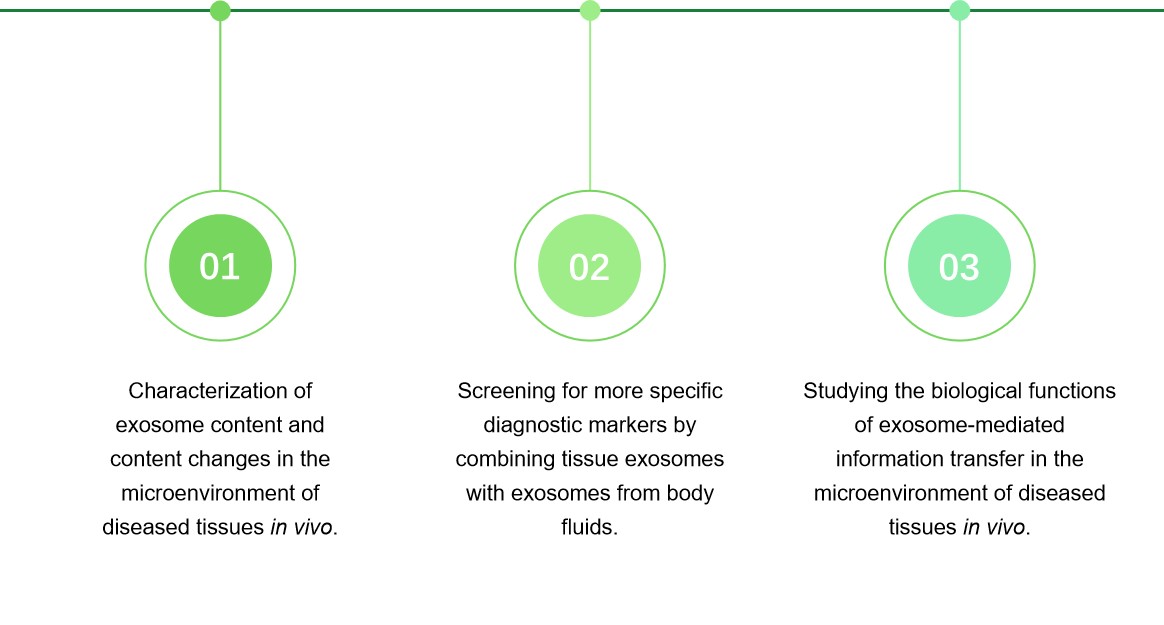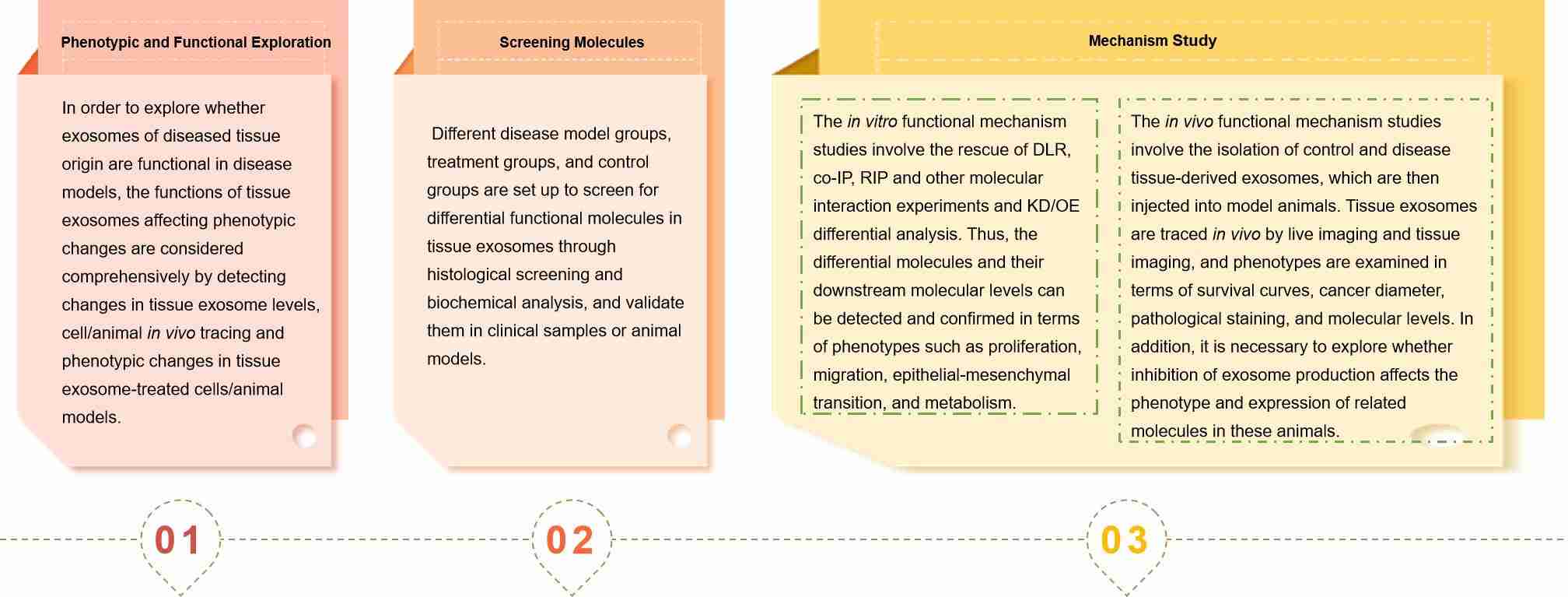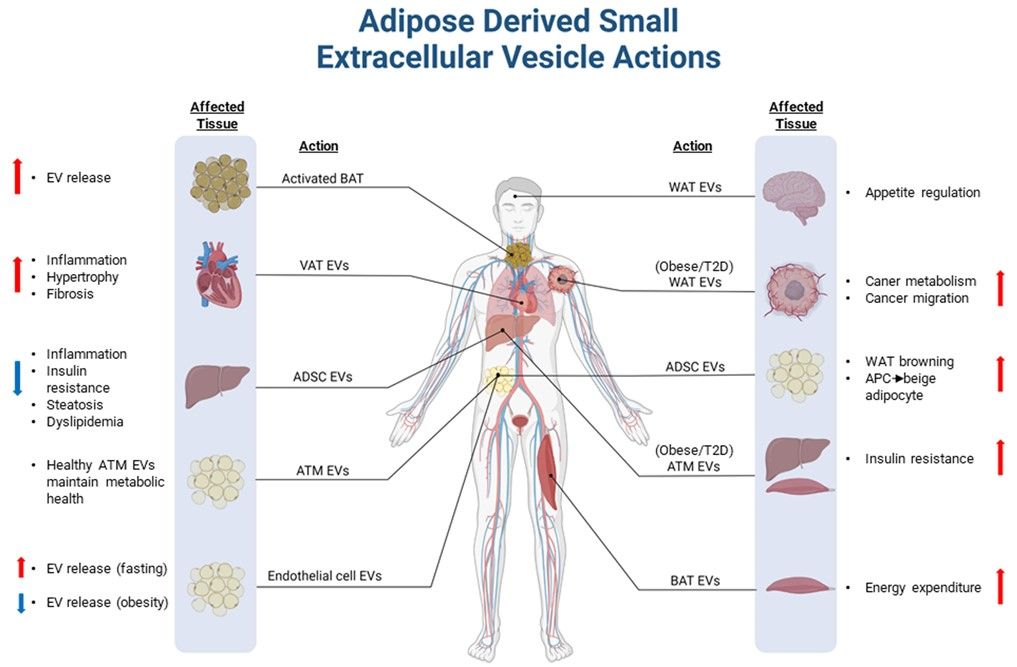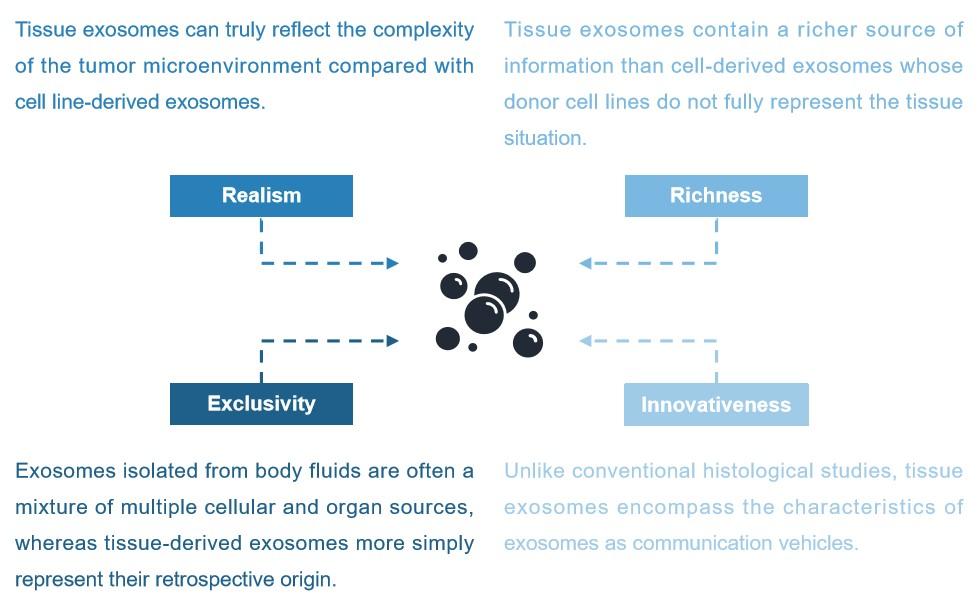Tissue Exosome Related Functional Research and Verification Services
Overview Services Features FAQs
Creative Biolabs provides tissue exosome-related functional research and verification services to help clients screen tissue exosome functions and their molecular mechanisms.
Overview
Tissue exosomes are exosomes found in the space between tissue cells, and they frequently function in the microenvironment of tissues that are ill. They are valuable for research because of their complex microenvironment that is closer to the real situation than cell lines, a richer source of information, and purer exclusivity than the humoral circulation. Currently, tissue exosomes are mainly used in the following three areas:

Functional Research Approaches and Systems
The functional examination of tissue exosomes is separated into three basic sections, including:

 Fig. 1 Overview of adipose-derived small extracellular vesicles in health and disease.1
Fig. 1 Overview of adipose-derived small extracellular vesicles in health and disease.1
Features of Tissue Exosomes
Tissue exosomes, an emerging hotspot in the field of exosome research, have the following characteristics compared to other sources of exosomes.

Creative Biolabs has rich experience in tissue exosome projects and is not only skilled in sectioning methods, enzyme selection, ratios, and digestion time in isolation and extraction, but also has established a mature and stable functional study process system. Our experienced experts in exosome research can provide customized functional studies and validation services for tissue exosomes to meet your needs. Please contact us to create a custom quote.
FAQs
Q: What services do you offer in tissue exosome research and verification?
A: We offer a range of services including isolation and characterization of tissue exosomes, functional assays to assess their biological activity, and verification of their molecular content using advanced techniques such as proteomics and genomics.
Q: How are tissue exosomes isolated and characterized?
A: Tissue exosomes are typically isolated using ultracentrifugation, filtration, or immunoaffinity methods. Characterization involves techniques like NTA and EM to determine their size, morphology, and concentration.
Q: What functional assays are performed on tissue exosomes?
A: Functional assays may include evaluating the exosomes' ability to transfer biomolecules between cells, their impact on cell proliferation or apoptosis, and their role in modulating immune responses. We also assess their potential as biomarkers or therapeutic agents.
Q: How do you verify the molecular content of tissue exosomes?
A: We use various analytical techniques to verify the molecular content of tissue exosomes, including mass spectrometry for proteomics, qPCR for nucleic acids, and lipidomic analyses to profile lipid components.
Q: What are the potential applications of tissue exosome research?
A: Tissue exosome research has applications in biomarker discovery, understanding disease mechanisms, drug development, and personalized medicine. They are particularly valuable in studying cancer, cardiovascular diseases, neurodegenerative disorders, and inflammatory conditions.
Reference
-
Bond, Simon T., Anna C. Calkin, and Brian G. Drew. "Adipose-derived extracellular vesicles: systemic messengers and metabolic regulators in health and disease." Frontiers in Physiology 13 (2022): 837001. Under Open Access license CC BY 4.0. The image was modified by revising the title.
For Research Use Only. Cannot be used by patients.
Related Services:



 Fig. 1 Overview of adipose-derived small extracellular vesicles in health and disease.1
Fig. 1 Overview of adipose-derived small extracellular vesicles in health and disease.1









